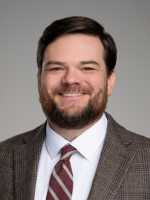The San Diego County Board of Supervisors will take up a proposal Tuesday to study how existing county Live Well Centers can be used to fill expected gaps in services connected to federal entitlement cuts.
Supervisor Monica Montgomery Steppe said the idea is to convert the centers into one-stop hubs where people can connect to health care and food services.
"What we are wanting to do with this proposal — based on a reaction to what I feel really is a lack of humanity from the federal administration — is to try to take care of people the best that we can," Montgomery Steppe said at a news conference Monday. "The Safety Net Bridge program is about ensuring that the people most harmed by federal neglect are not left to fend for themselves."
The proposal is a reaction to President Donald Trump's so-called "Big Beautiful Bill" that was signed into law this summer.
The bill cut nearly $1 trillion from Medicaid and could leave as many as 5 million people in California without coverage, according to advocacy nonprofit Health Access California.
The proposal includes a feasibility study on providing free primary medical care and medication at Live Well Centers.
It also imposed onerous new requirements to Supplemental Nutrition Assistance Program (SNAP) beneficiaries, Montgomery Steppe said.
"This is not just about the dollars — this is about eligibility," she said.
SNAP is administered in California as CalFresh.
According to the state, the federal cuts include new work requirements and cuts eligibility for lawful immigrants. They could also mean less food for beneficiaries.
County data shows almost 400,000 residents receive food through CalFresh.
To combat the changes, the county will also consider adding new cold food storage capabilities at its Live Well Centers.
That would mean healthier, fresher food to more people, said San Diego Food Bank CEO Casey Castillo.
For community members, especially those in underserved and rural areas, access to fresh, locally grown produce is transformative," Castillo said Monday.
The proposal is a more forward-looking plan anticipating gaps in the safety net, Montgomery Steppe said, and doesn't address current benefit lapses stemming from the federal government shutdown.
Information on county programs on more immediate crisis is available by calling 2-1-1 or visiting 211SanDiego.org.







